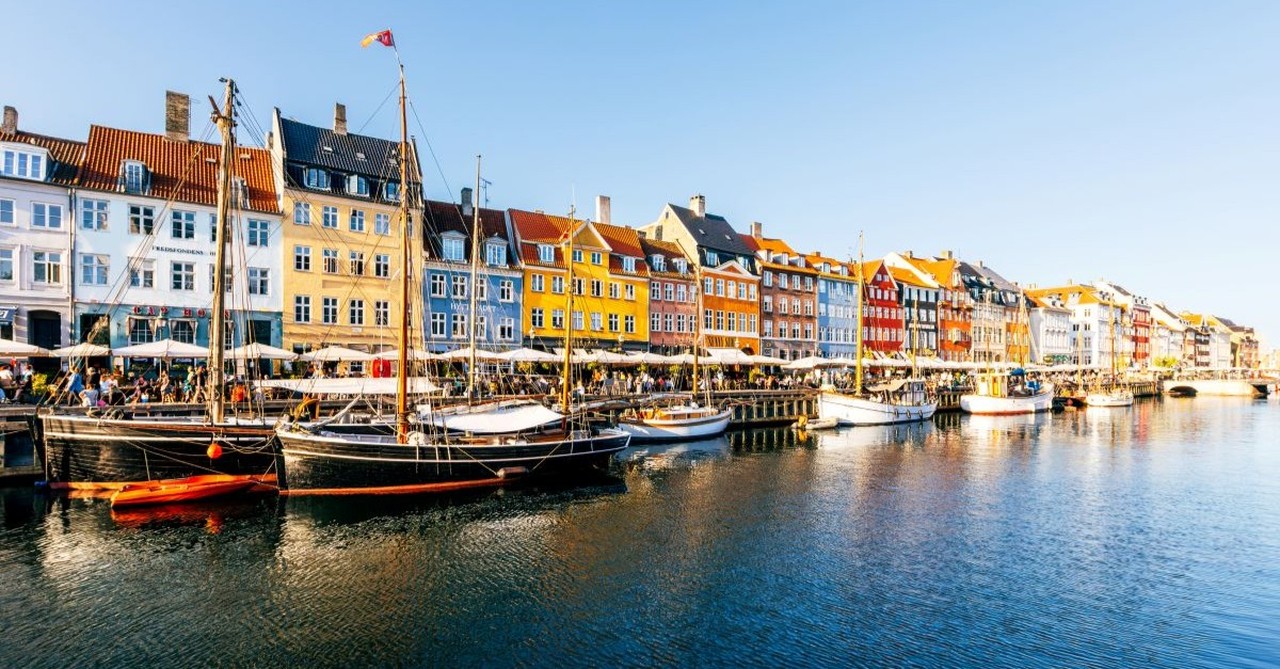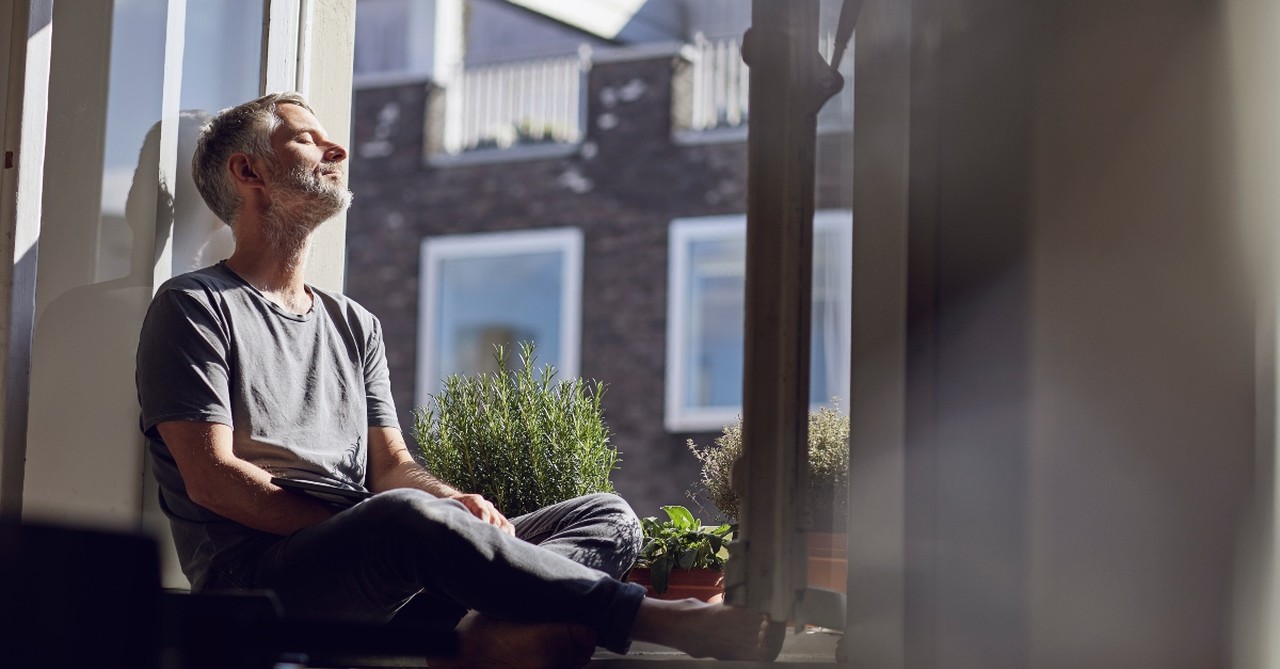5 Things a Trip to Denmark Will Reveal about Living with Faith and Purpose

People around the world often celebrate Denmark for its high quality of life. From the Danish emphasis on well-being and happiness to their commitment to sustainability, we can learn a lot about God from how the Danish people express their faith. Here’s what I learned about God from traveling to Denmark.
1. We Can Experience Joy with God by Appreciating Everyday Blessings
Denmark is most famous for its well-being concept of hygge, which helps Denmark consistently rank high on the annual World Happiness Index rankings in the World Happiness Report. Hygge is about creating experiences that help people feel well. It emphasizes appreciating the everyday blessings God is constantly pouring into people’s lives. Each day, Danish people look for the good in their lives, and thank God for those gifts by savoring them to the fullest. They give themselves time to enjoy their food rather than rushing through meals, for example. They often use their God-given senses to practice hygge, such as by lighting candles, playing music, or taking invigorating bike rides in fresh air. Whenever possible, Danish people practice hygge together, since relationships with friends and family is an important part of well-being.
I visited the Happiness Museum in Copenhagen, Denmark. Run by the Happiness Research Institute (which researches happiness worldwide), the museum highlights the different factors that affect how happy people feel. Those factors include the changing status of relationships, health, money, work, stress, and news that’s happening in the world. Happiness practices also factor into how happy people report feeling at any given time. People can temporarily boost their happiness through hygge practices, such as doing fun activities or enjoying humor. But the museum acknowledges that happiness is subjective. As the exhibit states: “At the end of the day, it is all about how we as individuals perceive our lives.”
While hygge can be a beautiful way to increase our feelings of happiness, we know as Christians that joy is greater than happiness. Happiness doesn’t last, because it depends on good circumstances. It’s a wonderful emotion, and God certainly wants us to experience happiness along with other emotions. However, joy is something more enduring and profound. Joy is a fruit of the Spirit (Galatians 5:22) that flows from our relationships with God, regardless of our circumstances. Nehemiah 8:10 points out: “The joy of the Lord is your strength.” This “joy of the Lord” comes from the hope we have in Christ, which can’t be shaken by even the toughest challenges we face.
From the Danish emphasis on hygge, we can learn valuable lessons about fully appreciating the everyday blessings God gives us. We can thank God for them by slowing down, savoring our experiences, and valuing our relationships over our to-do lists. As we do so, we’ll develop an attitude of gratitude, which can strengthen both our faith and our well-being.
However, we also should look beyond even the most hygge moments of happiness for the joy that only God can give us. Joy comes from knowing Jesus. The Bible tells us in 1 Peter 1:8: “Though you have not seen him, you love him; and even though you do not see him now, you believe in him and are filled with an inexpressible and glorious joy.” It also reveals in Psalm 16:11 that we can experience joy from connecting with God: “You make known to me the path of life; you will fill me with joy in your presence, with eternal pleasures at your right hand.”
So, the emphasis on happiness in Denmark can remind us to enjoy happy moments with gratitude, but also to seek joy directly from God in any circumstances.
Photo Credit: ©GettyImages/Alexander Spatari
2. We Can Experience God’s Wonder as We Care for Creation

2. We Can Experience God’s Wonder as We Care for Creation
SLIDE 1 OF 4
Denmark is renowned for its commitment to environmental sustainability and its culture of enjoying time in nature. This dedication shows up in their habit of seeking God through spiritual experiences in nature, their widespread recycling and use of renewable energy, and their culture of riding bikes outdoors as often as possible.
From the very beginning of creation, God gave humanity the sacred trust of caring for our planet Earth. Genesis 2:15 reports: “The Lord God took the man and put him in the Garden of Eden to work it and take care of it.” The Danish dedication to bæredygtighed (sustainability) – living in ways that meet current needs without compromising the ability of future generations to meet their own needs – highlights how Earth is a valuable gift from God. People in Denmark integrate sustainability into their daily lives because they take God’s call to care for our planet seriously. I saw more people riding bikes or using public transportation than driving cars in Denmark. They often recycled whatever they could, and if they saw trash discarded in public areas, they picked it up. When I bought takeout meals, I got wooden utensils with them, rather than unhealthy single-use plastic items. The water was so clean in Copenhagen that people enjoyed swimming in it.
Danish people look for glimpses of God in nature more than any other place. They love to spend time outside in any kind of weather to discover and experience God’s wonder regularly there. The Danish word forundring describes the feeling of awe that comes from encountering something extraordinary, like God’s wonder. In Denmark, people love to look for evidence of the Creator in creation. Romans 1:19-20 says: “For what may be known about God is plain to them, because God has made it plain to them. For since the creation of the world God’s invisible qualities – his eternal power and divine nature – have been clearly seen, being understood from what has been made, so that people are without excuse.” Danish people often learn about God through nature. They often explore nature by hiking, biking, gardening, and visiting parks. They know that God’s wonder is everywhere in nature, waiting for them to discover it. As Psalm 65:8 says to God: “The whole earth is filled with awe at your wonders…”.
When we care for creation, we’re appreciating God’s presence and majesty within it. The Danish way of life teaches us to recognize that the earth is not a resource to be exploited, but a sacred place God has trusted us to care for well and enjoy being inspired with wonder in the process.
Photo Credit: © Getty Images/Halfpoint
3. We Can Grow Closer to God through Quiet Reflection

3. We Can Grow Closer to God through Quiet Reflection
SLIDE 2 OF 4
In a world filled with noise and stress, people in Denmark focus on quiet reflection whenever they can. Danish people limit their work hours and prioritize reflective time. They include time in their daily schedules to reflect on their lives in quiet places. God speaks directly to us through Psalm 46:10, saying: “Be still, and know that I am God.” Quiet reflection can help us meditate on God’s Word, his character, and his work in our own lives. It’s a discipline that helps us tune out the world’s distractions and tune into God’s constant presence with us, which helps us grow closer to our loving Creator.
When our lives are packed with noise and busyness, it can be hard to hear God’s voice. God often speaks quietly to us because he wants to motivate us to move closer to him. If we dare to spend more time in quiet reflection, we can experience the blessing of hearing from God more often and enjoying closer relationships with him. Taking time for quiet reflection allows us to step away from our busy schedules and the pressure of our daily tasks. In this quiet space, we can simply be with God. Being still can help us communicate with God well, so we can perceive God’s messages to us.
When we practice this kind of quiet reflection, we can build prayer and meditation habits we enjoy. That will help us grow closer to God every day. God will give us the strength we need to deal with the stress of living in this fallen world as we seek him through regular quiet reflection breaks.
Photo Credit: ©Getty Images/Westend61
4. God Made Us All Equal and Wants Us to Respect Each Other

4. God Made Us All Equal and Wants Us to Respect Each Other
SLIDE 3 OF 4
Danish society shows a commitment to equality and respect for all people. Denmark has social welfare programs designed to help everyone – regardless of their ethnicity, gender, income, abilities, or social status – is treated with dignity and given opportunities to education, jobs, healthcare, and more. They also have a popular concept called the Law of Jante, which is an unwritten social code that’s often summarized as: “You are not to think you are better than us.” The Law of Jante discourages boasting and self-promotion. It encourages a sense of humble respect for each other that’s based on recognizing the inherent value of every person.
This highlights how God, our Heavenly Father, created us all with equal value as his beloved children. Galatians 3:28 points out that we are designed to be one: “There is neither Jew nor Gentile, neither slave nor free, nor is there male and female, for you are all one in Christ Jesus.” James 2:1 warns us against showing favoritism: “My brothers and sisters, believers in our glorious Lord Jesus Christ must not show favoritism.” Our worth comes from God, not from our achievements, possessions, or anything else that society may use to make distinctions between us. Only God decides how valuable we are – and God has chosen to make us all equal and love us unconditionally.
Denmark’s emphasis on equality and respect can challenge us to get rid of any arrogant attitudes we may have and embrace a humble posture before God and other people. As Philippians 2:3 instructs us: “Do nothing out of selfish ambition or vain conceit. Rather, in humility value others above yourselves.” It also encourages us to love each other, as God calls us to do. Romans 12:10 advises us: “Be devoted to one another in love. Honor one another above yourselves.” We can do so by listening well to each other’s perspectives, learning from each other with mutual respect, and helping to meet each other’s needs.
Photo Credit: ©Getty Images/Delmaine Donson
5. We Can Experience God’s Love through Kindness and Community

5. We Can Experience God’s Love through Kindness and Community
SLIDE 4 OF 4
Danish people also value kindness. They often try their best to choose kind words and actions day by day, and they consider what’s best for all concerned when they design something for the public. While Danish people tend to be quiet, they’re also friendly. For example, every time I asked someone for help with directions, that person was willing to stop whatever he or she was doing to give me the information I needed. I was also impressed to see that public attractions tried to be accessible to everyone. For instance, a forest tower I visited at a park was built with ramps rather than stairs, so people in wheelchairs could also enjoy the experience.
This can inspire us to consider how we can be more kind in our own communities so that God’s love will flow through our lives and into other people’s lives. Ephesians 4:32 encourages us to: “Be kind and compassionate to one another, forgiving each other, just as in Christ God forgave you.” Since God has been so kind to us, we should be kind to other people. We’ll encounter lots of opportunities to do so every day – and God wants us to make the most of those opportunities, so everyone can experience his love.
In conclusion, a trip to Denmark highlights the importance of the values God calls us all to embrace. It shows the blessings that are possible when we seek God in all circumstances and find joy in our relationships with him, care for God’s creation, experience God’s wonder in it, grow closer to God through quiet reflection, respect each other, and treat each other with kindness so God’s love will flow through our lives.
Photo Credit: ©Getty Images/SDI Productions

Originally published August 01, 2025.






